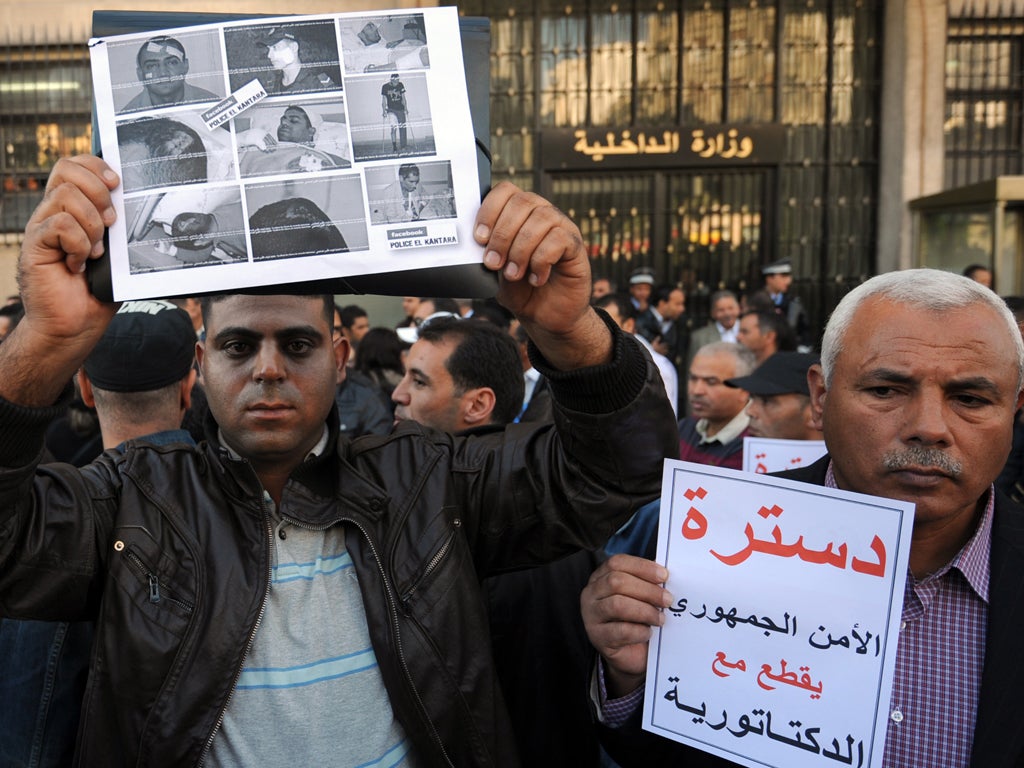The evidence coming out of Tunisia points in one direction. The extremists are on the march
Clashes involving Salafis; women gang-raped by police; attacks on the US embassy: hopes for democracy in the birthplace of the Arab Spring are fading

Tunisia extended its state of emergency today. It came after Islamist fundamentalists attacked two national guard posts and dozens of supporters took to the streets of the capital Tunis, a number waving knives.
Previously such extensions only occurred on a 30 day basis. This time, and in the latest worrying sign for the north African states of the Arab Spring, it will last until to the end of January.
Tunisia has for decades been considered one of the most secular in the Arab world. After the moderate Islamist Ennahda Movement won last year’s election, it formed a coalition with two non-religious parties on the promise not to ban alcohol, impose the veil or use sharia as the basis for Tunisian law.
When the new Prime Minister Hamadi Jebali met
independentvoices.com Editor-in-Chief Evgeny Lebedev shortly afterwards at his office in Tunis, he was adamant the country would continue its moderate path.
“Tunisian society is an open society,” he promised. “Moderate. This is what [Tunisians] are moving towards. They will not accept extreme solutions.”
That aspiration has increasingly been challenged by recent events. Tunis has seen clashes between alcohol sellers and hard-line Salafi Muslims. In September dozens of people attacked a hotel in Sidi Bouzid because it was the last place in the city that still served alcohol.
Sidi Bouzid has particular significance in Tunisia as it is the site which in December 2010 saw fruit-seller Mohamed Bouazizi's immolation in protest against President Zine el-Abidine Ben Ali’s authoritarian rule – an act which sparked the wave of unrest which swept across the Arab world.
The city is now the centre of a Salafist campaign to impose its social rules and customs. The anti-alcohol war was first launched in the early summer and has proved so successful that the city’s governor urged businesses serving alcohol to leave the city centre after numerous violent attacks.
Prime Minister Jebali has been insistent that this time what is happening in Sidi Bouzid is not a sign of things to come.
Addressing the European Parliament, he told legislators: “We do not want a theocratic state but a democratic one, that serves citizens, and which will ensure the equality of all.”
But doubt is growing about if these words can be turned into reality. Fundamentalists have recently attacked the US embassy, breaching the outer wall and starting fires in the compound. A woman was gang-raped by police – and then found herself the one prosecuted. A representative of a secular party was assassinated.
When talking with Mr Lebedev, Jebali maintained: “The Tunisian people will not accept extremism.” That is looking less certain now.
Join our commenting forum
Join thought-provoking conversations, follow other Independent readers and see their replies
Comments
Bookmark popover
Removed from bookmarks